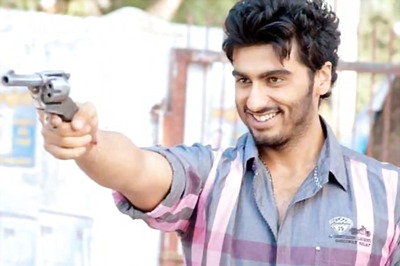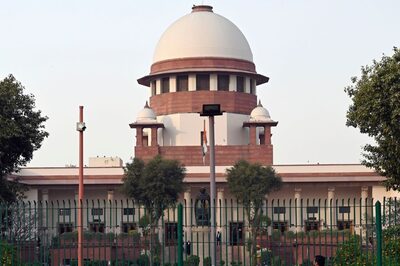
views
New York/Washington: Dominique Strauss-Kahn won bail on Thursday but faced one more night in a New York jail, hours after he quit as head of the IMF under the cloud of sex crime charges.
His resignation intensified a race for global finance's top job. It has gone to Europe for 65 years and the favorite is now French Finance Minister Christine Lagarde but fast-growing developing economies want to put up their own candidate.
A judge granted Strauss-Kahn $1 million bail and ordered him to be detained in a New York apartment. He will be subject to electronic monitoring under the watch of an armed guard, costing him $200,000 a month, a prosecutor estimated.
Prosecutors argued vehemently the French national should remain behind bars, calling him a flight risk.
"The defendant in this case has shown a propensity for impulsive criminal conduct," said prosecutor John McConnell.
He said the hotel maid who accused Strauss-Kahn of trying to rape her on Saturday, a 32-year-old immigrant from Guinea, had told a "compelling and unwavering story."
Strauss-Kahn denies the charges and his lawyers say he will plead not guilty. His bail package was due to be signed on Friday and an arraignment hearing, when he will formally answer the charges, was set for June 6.
The case represents a spectacular fall from grace for a man held in high esteem for his role in tackling the financial crisis of 2007-09 and being central to ongoing efforts to keep Europe's debt crisis under control.
Dressed in a blue shirt and gray jacket, Strauss-Kahn looked tired and whispered occasionally to his lawyer during Thursday's proceedings. He was flanked by seven guards as his wife and one of his daughters watched from the public gallery.
The charges that Strauss-Kahn tried to rape the maid and committed other sex offenses, plus the prospect of a lengthy legal process, have ruined his once strong-looking chances of winning France's presidential election next year.
One of his attorneys denied he would flee.
"I have to say that the prospect of Mr. Strauss-Kahn teleporting himself to France and living there as an accused sex offender, fugitive, is ludicrous on its face," lawyer William Taylor told the judge.
"He is an honorable man ... He has only one interest at this time and that is to clear his name."
In his resignation letter, composed at New York's notorious Rikers Island jail and released by the International Monetary Fund overnight, Strauss-Kahn vowed to fight the charges.
"I deny with the greatest possible firmness all of the allegations that have been made against me," he wrote.
A trial could be six months or more away. If convicted, he could face 25 years in prison.
A senior source at the IMF said Strauss-Kahn had tendered his resignation as managing director of his own accord. "He wasn't strong-armed," a source familiar with the events said.
One Strauss-Kahn attorney, Benjamin Brafman, has said the evidence "will not be consistent with a forcible encounter."
A lawyer for the alleged victim, who has gone into hiding to avoid media attention, told Reuters she opposed bail.
"The idea that the man who did this to her is now on the street, so to speak, and able to do what he wants to do in the world is something which is frightening to her," attorney Jeffrey Shapiro said.
Lagarde emerged as the favorite to take over the IMF leadership even as China and other nations stepped up a challenge to Europe's grip on the job.
US Treasury Secretary Timothy Geithner called for an "open process that leads to a prompt succession," although sources in Washington said the United States, the IMF's biggest financial contributor, would back a European for the post.
The crisis at the IMF comes at a sensitive time given its role in helping euro zone states such as Greece, Ireland and Portugal deal with huge debt problems. Europeans argue that shows why it makes sense for them to retain the post.
"The tradition can be changed but not now," said Herman Van Rompuy, who as president of the European Council represents the European Union's member countries.
The succession issue will probably be discussed at a summit of Group of Eight leaders in France next week. Together, the United States and European nations hold more than 50 per cent of the IMF's voting power, giving them say over who leads it.
A Reuters poll of economists showed 32 of 56 think Lagarde is most likely to succeed Strauss-Kahn.
The prime ministers of Italy and Luxembourg publicly backed her on Thursday. Diplomats said she also had backing from France, Germany and Britain, Europe's three biggest economies.
"If the Europeans very strongly endorse Lagarde, that will help, whereas I'm not sure the developing countries will coalesce around one person," said Stephany Griffith-Jones, financial markets program director at Columbia University.
Lagarde is a fluent English speaker and has experience of balancing the demands of rich and developing countries because France is chair of the Group of 20 nations this year.
She was expected to get US backing, not least because Washington wants to keep the number two IMF job and the leadership of the World Bank, the Fund's sister organization.
In veiled warnings against another US-European stitch-up, China and Japan both called for an open, transparent process to choose a successor on merit. Canada agreed but conceded that a European was likely to get it, a government official said.
Lagarde, 55, declined to say if she was interested but told reporters: "Any candidacy, whichever it is, must come from Europeans jointly, all together."
Several European diplomats said she had been quietly canvassing support in the expectation that Strauss-Kahn would stand down within weeks to run for the French presidency.
A former head of the US law firm Baker & McKenzie in Chicago before joining the French government in 2005, Lagarde is also under something of a legal cloud herself.
A French public prosecutor recommended this month she be investigated over an arbitration case involving businessman and former politician Bernard Tapie. Judges are expected to decide in mid-June whether to order a full-scale inquiry.
One non-European candidate could be former Turkish Economy Minister Kemal Dervis, 62, an economist with IMF experience.
In a poll released in France on Wednesday, 57 per cent of respondents thought Strauss-Kahn, a Socialist politician, was definitely or probably the victim of a plot.
But French politics has moved on to the search for a challenger to unpopular conservative President Nicolas Sarkozy next year. Former Socialist leader Francois Hollande is now the center-left front-runner but party leader Martine Aubry is under pressure to enter a Socialist primary.




















Comments
0 comment